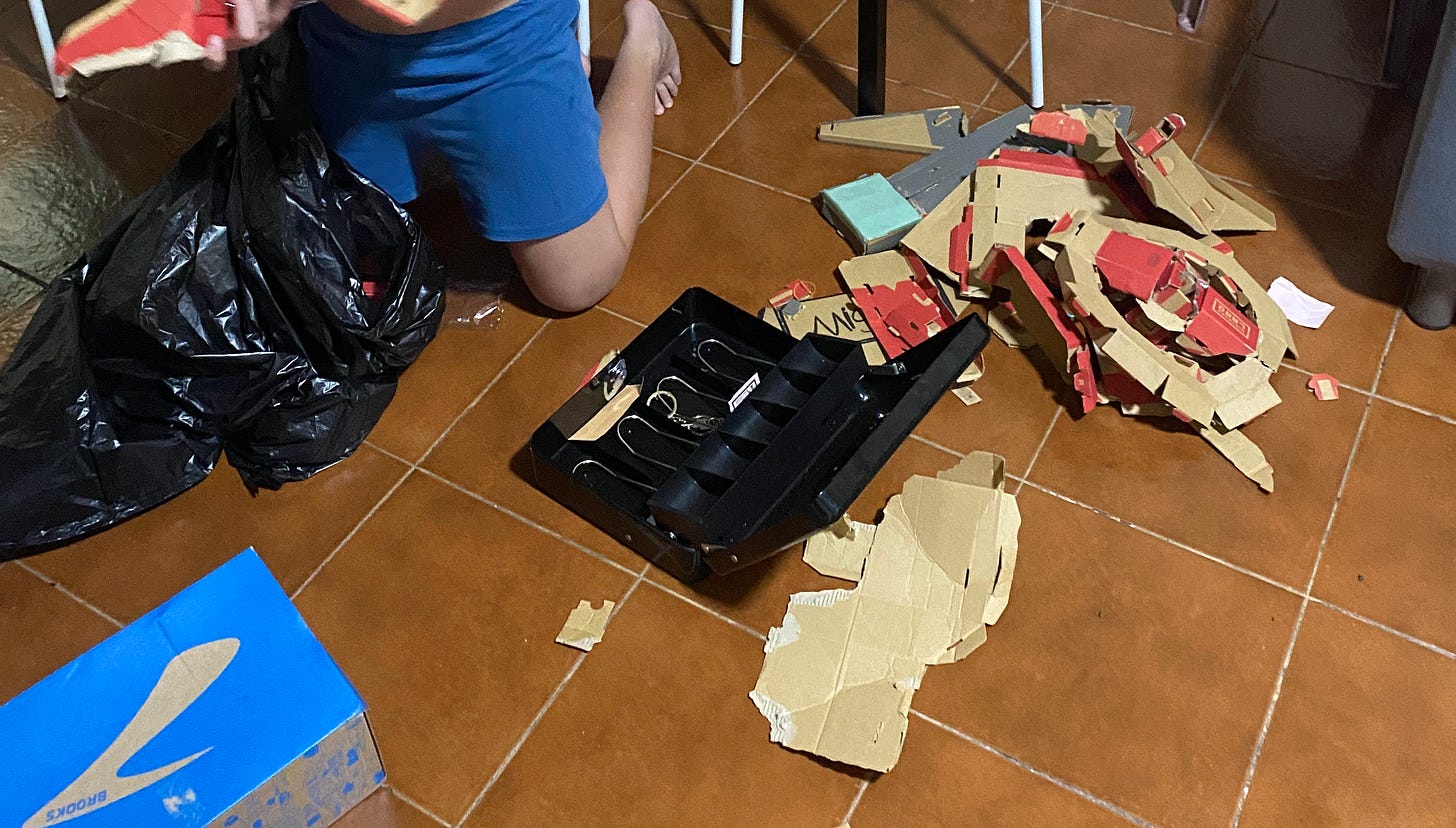Why can't Daddy be as calm as you?
What our 10-year-old’s question taught me about anger, repair, and parenting with honesty
Why can't Daddy be as calm as you?
That was our 10-year-old's question to my wife minutes after he threw a fit and I stormed out.
I've never been a calm person. I don't think I've been a patient one either.
At work, I enjoy being an individual contributor because then I have full control of my output—avoiding dependencies and mishaps when someone else drops the ball.
I've always preferred control and efficiency.
Which explains why, whenever our son is throwing a tantrum and screaming in my face, my default option is to walk away.
I have the solution in my head already, but he won't listen, so why waste time trying? I'll just come back and talk to him when he's in a calmer state.
We tried it before, and many times at that. But we always end up in a shouting match and me hurling hurtful words at him. And so, when he starts getting frustrated, I just walk away. I told myself it was the practical thing to do.
What I didn't realize was that this felt like abandonment to him. And it can be scary for a 10-year-old. To be left to himself to deal with whatever it is he's dealing with, this must've felt both frightening and heavy for him.
And so, after hearing him blurt those words out, I had to pause and reflect. Sure, it might seem like the right and logical decision for me to make, but I guess I never considered its effect on our son.
I tried talking myself into being calmer in these charged moments with our children, but that's like Sisyphus trying to get that giant boulder over a hill: pointless. Suppressing our emotions just makes things worse. It might not show right away, but it will surely come back to bite you later.
The new path we tried is more simple. Too simple even, so simple I wonder why I didn't try it sooner. And this has worked and still is working to this day, so I think there's some merit to that.
We simply tell him what's going on. No sugarcoating, no dressing it up. We just say it as it is, in words they can take in. The same way we'd talk to anyone else: plain and simple.
"I feel like I'm getting stressed a little now, and I'm just going to our room to take a break so I can be calmer when we talk later," or something along those lines.
And let me tell you, it's like magic.
Not only did this give us space to reflect and think of (1) how we're going to approach the conversation, but also (2) what exact words to say.
And that space was what I needed to realize I was just putting pressure on myself to come up with answers right away. I was expecting too much from myself.
Just being able to put that into words for our kids had a welcome effect on them too. They've become more articulate in telling us how they feel--whether in the heat of an argument or in everyday moments.
We still have a long way to go. There are times I slip back into my old ways of losing it and storming out but the difference now is that I can catch myself, admit it, and make it right with a simple, "I'm sorry, Daddy lost it."
I used to think calm meant never losing it at all, but I'm learning calm can also mean coming back, repairing, and trying again.
And maybe that's the reminder other parents need too: we don't have to be perfect to be good. As parenting expert Becky Kennedy puts it, "You are not defined by your reactivity or your moments of depletion or your latest behavior." Neither are our kids.





